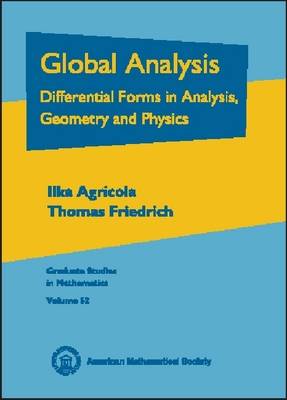Graduate Studies in Mathematics
1 total work
This book is an introduction to differential geometry through differential forms, emphasizing their applications in various areas of mathematics and physics. Well-written and with plenty of examples, this textbook originated from courses on geometry and analysis and presents a widely-used mathematical technique in a lucid and very readable style. The authors introduce readers to the world of differential forms while covering relevant topics from analysis, differential geometry, and mathematical physics. The book begins with a self-contained introduction to the calculus of differential forms in Euclidean space and on manifolds. Next, the focus is on Stokes' theorem, the classical integral formulas and their applications to harmonic functions and topology. The authors then discuss the integrability conditions of a Pfaffian system (Frobenius' theorem). Chapter 5 is a thorough exposition of the theory of curves and surfaces in Euclidean space in the spirit of Cartan.The following chapter covers Lie groups and homogeneous spaces. Chapter 7 addresses symplectic geometry and classical mechanics. The basic tools for the integration of the Hamiltonian equations are the moment map and completely integrable systems (Liouville-Arnold Theorem). The authors discuss Newton, Lagrange, and Hamilton formulations of mechanics. Chapter 8 contains an introduction to statistical mechanics and thermodynamics. The final chapter deals with electrodynamics. The material in the book is carefully illustrated with figures and examples, and there are over 100 exercises. Readers should be familiar with first-year algebra and advanced calculus. The book is intended for graduate students and researchers interested in delving into geometric analysis and its applications to mathematical physics.
